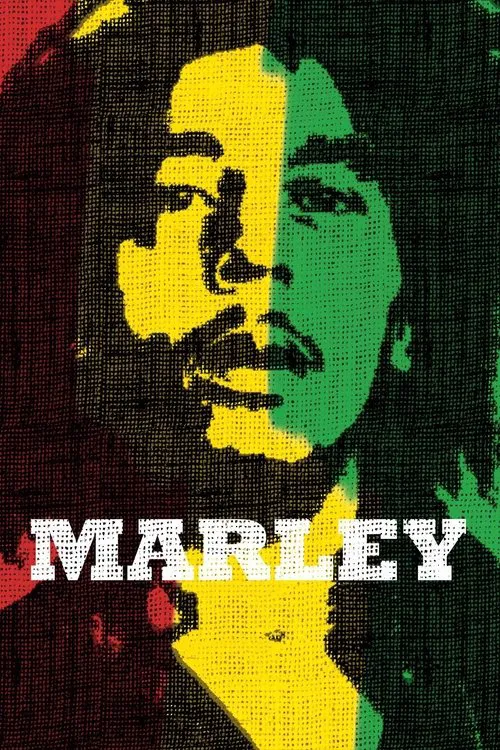Marley

Trama
Regarded by many as one of the most profound and influential musicians of all time, Bob Marley's remarkable journey is a testament to the transformative power of music. Born on February 6, 1945, in the Trenchtown slum of Kingston, Jamaica, Marley's early life was marked by turmoil and hardship. The eldest of eight children born to Norval Marley, a white Englishman, and Cedella Booker, a black Jamaican, Bob's parentage was the subject of a bitter dispute between his parents. As a young boy, Bob and his mother faced racism and exclusion from his father's family, forcing them to relocate to Trenchtown, a ghetto where poverty and crime were rampant. It was within these challenging circumstances that Bob discovered his love for music. The sounds of mento, calypso, and American jazz, as well as the influence of the Rastafarian movement, had a profound impact on his development as an artist. Bob's musical journey began under the tutelage of his friend and mentor, Dudley "Toots" Hibbert, a renowned reggae musician. As a young teenager, he formed the group The Wailers with his friends Bunny Wailer (Neville Livingston) and Peter Tosh. The Wailers quickly gained a local following in Jamaica, known for their energetic live performances and catchy, socially conscious songs like "Simmer Down." In the mid-1960s, The Wailers were joined by keyboardist and guitarist Rita Marley, Bob's future wife. With Rita's addition, the group's sound evolved to incorporate more complex harmonies and rhythms. This period also saw The Wailers achieve their first major success with the song "Concrete Jungle," which topped the Jamaican charts. The late 1960s and early 1970s marked a pivotal moment in Bob's life, as he began to gain international recognition. The Wailers' music was championed by a British producer, Chris Blackwell, who recognized the group's potential for crossover success. Blackwell's label, Island Records, released The Wailers' debut album, "Soul Rebels," in the UK, which gained a small but devoted following. In 1972, Bob Marley and the Wailers embarked on a tour of the United States, performing at iconic venues like the Apollo Theater in Harlem. The tour marked a turning point in Bob's life, as he began to adopt the Rastafarian faith and became more outspoken about his political views on Jamaican independence and social justice. However, the tour was also marked by violence and tension, including a shooting incident in Miami involving Bob's brother, Neville Marley. On December 3, 1976, Bob's tour bus was attacked by members of the Twelve Tribe of Israel, a Rastafarian sect that rejected the Wailers' growing commercial success. The incident left two members of the group, drummer Al Anderson and road manager Don Taylor, wounded. The near-death experience did little to deter Bob, who continued to write and record music that was both personal and universal in its appeal. In 1977, Bob Marley and the Wailers released the album "Exodus," which included the iconic song "One Love," a call to unity and social justice that resonated with people around the world. Tragically, Bob's life was cut short on May 11, 1981, when he died from complications related to cancer. The official diagnosis was acute malignant astrocytoma, a type of brain tumor, although some conspiracy theories have suggested that Bob was poisoned or murdered due to his outspoken views. The film "Marley" captures the essence of Bob's extraordinary life, featuring interviews with those who knew him best, including Rita Marley, Bunny Wailer, and Peter Tosh. The documentary also includes rare footage and home movies, offering a glimpse into the behind-the-scenes life of a musical icon. Shot on location in Jamaica, the film explores the country's complex history, from the arrival of Spanish colonizers to the struggles of the late 20th century. Bob's vision of unity and social justice is also examined, including his involvement with the African diaspora and his adoption of the Rastafarian faith. Throughout the film, the narrative is woven together with footage of Bob's music, demonstrating his unique ability to craft songs that speak to people from all walks of life. From the reggae standard "Three Little Birds" to the haunting ballad "I Shot the Sheriff," Bob's songs continue to inspire and uplift people around the world. With its vivid imagery, engaging narrative, and poignant interviews, "Marley" is a testament to the enduring legacy of Bob Marley. A man who rose from the streets of Kingston to become an international icon, Bob left an indelible mark on music and popular culture. As a social and political prophet, he inspired countless movements and activists to fight for justice and equality. As the documentary so eloquently captures, Bob's music will forever remain a timeless testament to the transformative power of art. "Marley" is a moving tribute to a man who changed the world, one song at a time.
Reseñas
Recomendaciones




